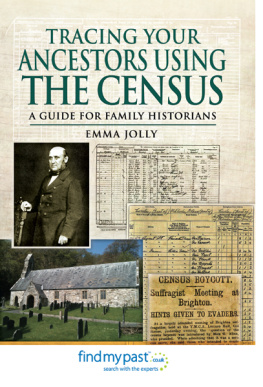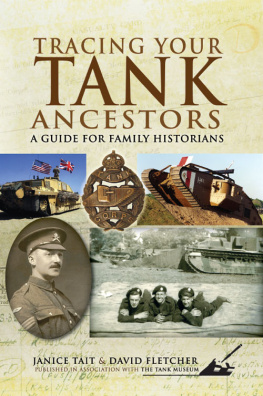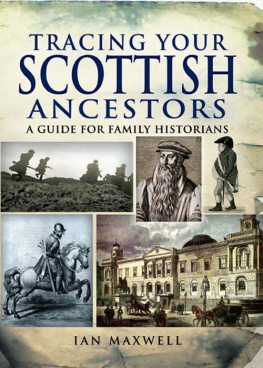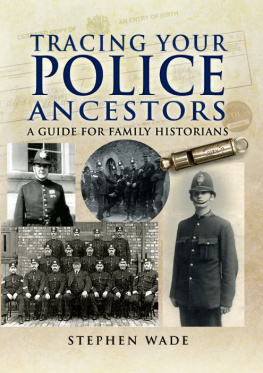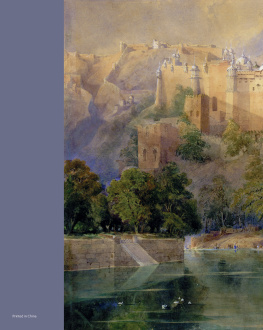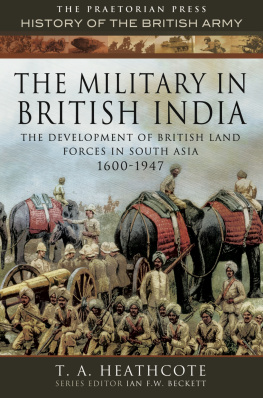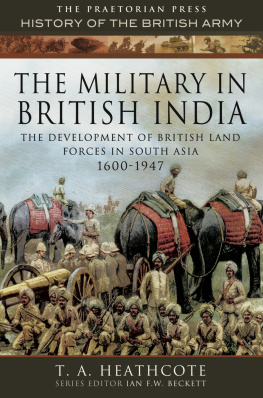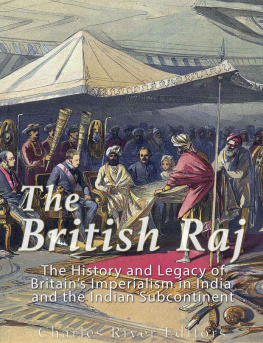FAMILY HISTORY
Tracing Your Yorkshire Ancestors
Rachel Bellerby
The Great War Handbook
Geoff Bridger
Tracing Your Royal Marine Ancestors
Richard Brooks and Matthew Little
Your Rural Ancestors
Jonathan Brown
Tracing Your Pauper Ancestors
Robert Burlison
Tracing Your East End Ancestors
Jane Cox
Tracing Your Labour Movement Ancestors
Mark Crail
Tracing Your Ancestors
Simon Fowler
Tracing Your Army Ancestors
Simon Fowler
A Guide to Military History on the Internet
Simon Fowler
Tracing Your Northern Ancestors
Keith Gregson
Your Irish Ancestors
Ian Maxwell
Tracing Your Northern Irish Ancestors
Ian Maxwell
Tracing Your Scottish Ancestors
Ian Maxwell
Tracing Your London Ancestors
Jonathan Oates
Tracing Family History on the Internet
Christopher Patton
Great War Lives
Paul Reed
Tracing Your Air Force Ancestors
Phil Tomaselli
Tracing Your Second World War Ancestors
Phil Tomaselli
Tracing Your Secret Service Ancestors
Phil Tomaselli
Tracing Your Criminal Ancestors
Stephen Wade
Tracing Your Legal Ancestors
Stephen Wade
Tracing Your Police Ancestors
Stephen Wade
Tracing Your Jewish Ancestors
Rosemary Wenzerul
Fishing and Fishermen
Martin Wilcox
First published in Great Britain in 2012 by
PEN & SWORD FAMILY HISTORY
An imprint of
Pen & Sword Books Ltd
47 Church Street
Barnsley
South Yorkshire
S70 2AS
Copyright Emma Jolly, 2012
ISBN 978-1-84884-573-2
PRINT ISBN 9781848845732
EPUB ISBN 9781844684038
PRC ISBN 9781844684045
The right of Emma Jolly to be identified as the author of this work has been
asserted by her in accordance with the Copyright, Designs and Patents Act 1988.
A CIP catalogue record for this book is available from the British Library.
All rights reserved. No part of this book may be reproduced or transmitted in any form
or by any means, electronic or mechanical including photocopying, recording or by any
information storage and retrieval system, without permission from the Publisher in writing.
Typeset by Concept, Huddersfield, West Yorkshire.
Printed and bound in England by CPI Group (UK) Ltd, Croydon, CR0 4YY.
Pen & Sword Books Ltd incorporates the imprints of
Pen & Sword Aviation, Pen & Sword Family History, Pen & Sword Maritime,
Pen & Sword Military, Pen & Sword Discovery, Wharncliffe Local History,
Wharncliffe True Crime, Wharncliffe Transport, Pen & Sword Select,
Pen & Sword Military Classics, Leo Cooper, The Praetorian Press,
Remember When, Seaforth Publishing and Frontline Publishing.
For a complete list of Pen & Sword titles please contact
PEN & SWORD BOOKS LIMITED
47 Church Street, Barnsley, South Yorkshire, S70 2AS, England
E-mail:
Website: www.pen-and-sword.co.uk
CONTENTS
ACKNOWLEDGEMENTS
T his book would never have existed without the idea from Simon Fowler and his persistence in ensuring it became reality. I am very grateful to him for asking me to write it. At Pen & Sword, I am grateful to Rupert Harding for editorial support and patiently answering scores of emails; and to Pamela Covey for her editing.
Much of my research has taken place in the Asian and African Studies Reading Room at the British Library. All staff members there continue to be invaluable in their assistance, and the enquiries team, particularly, has been consistently helpful and efficient.
I should also like to acknowledge my friends and fellow genealogists, many of whom have been very supportive throughout the preparations for this book. Justine Taylor generously gave me the benefit of her extensive military history and editing expertise. Chris Paton has shown continuous support on his blog http://britishgenes.blogspot.com and kindly taken time to read and comment on several chapters.
In addition, I continue to be inspired by the individuals and families that I research, and I am fortunate that a number of clients were happy for me to reproduce parts of their family histories. I extend sincere thanks to Guy Dixon of Jersey, John Stephens, and Mike Rainey.
As a member of the wonderful FIBIS family history society, I have been greatly assisted by fellow members giving general words of encouragement, sharing family or personal memories, and allowing me to use material in this book. Special thanks go to FIBIS member and volunteer, Noel Gunther; FIBIS Webmaster, Valmay Young; FIBIS Chairman, Peter Bailey; FIBIS Trustee, Elaine MacGregor; and to Valmays grandmother, Betty Gascoyne, for sharing her photographs and memories.
I receive almost daily support from friends and followers on Twitter. Warm thanks are due, especially, to Jane Fleming, MatthewWard, genetic genealogist Debbie Kennett, military historian Paul Reed, and The Army Children Archive (www.archhistory.co.uk) for allowing their images and family memories to be included here. Also thanks to railway historian David Turner of http://turniprail.blogspot.com for his reading and invaluable advice.
I am grateful to Hugh Purcell who kindly allowed me to quote from his excellent book After the Raj: The Last Stayers-On and the Legacy of British India.
Thanks also to my parents, Barry and Alethea Jolly, who manfully read each early draft and gave valuable advice. And my final and biggest thanks go to my husband, Simon Causer and our children, Jacob and Oscar, for providing much-needed distraction and fun.
PREFACE
T his book is aimed at anyone who is tracing British ancestors who were born, lived or worked in the Indian region between 1600 and the late twentieth century. While the official period known as British India is that of the Raj, British involvement in India largely dates from the time of the East India Company (later the British East India Company).
In 1700, the population of India was twenty times that of Britain. Despite this, British dominance in India grew to such an extent that, eventually, more than 250 million Indians were being governed by 900 British civil servants with the support of 70,000 British soldiers. Britain became a global superpower in a way that would never have been possible without India, which was later described by Prime Minister Disraeli as the brightest jewel of the crown in the British Empire. Yet there had been no grand plan for this world dominance. Instead, the Empire evolved gradually from very simple beginnings.
Today the term British Indian or British-Indian is used to describe British citizens who are ethnically Indian. Similar considerations apply to the citizens of modern-day Pakistan, Bangladesh and Sri Lanka. In this book, however, the term is used to refer to the British who lived and worked in India during the time of British control. This may include Britons of Indian descent and those with ancestors from elsewhere in Europe and Asia.
The reason for this usage is that other terms are insufficient in their implication. British Raj ancestors would limit only to those who lived between 1858 and 1947. And the term Anglo-Indian (and its earlier form, Indo-British) has been used in different ways in different periods by different authors.
One example of this may be found in White Mughals by William Dalrymple, who refers to the children of English fathers and Indian women in the eighteenth century as Anglo-Indian children.describing people with mixed British and Indian ancestry. Usually, the male side was British and the female side Indian, although Anglo-Indians who were born in Britain usually had Indian fathers and British mothers.
Next page

